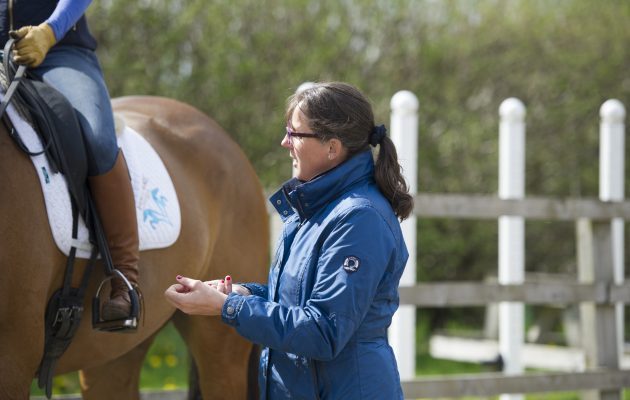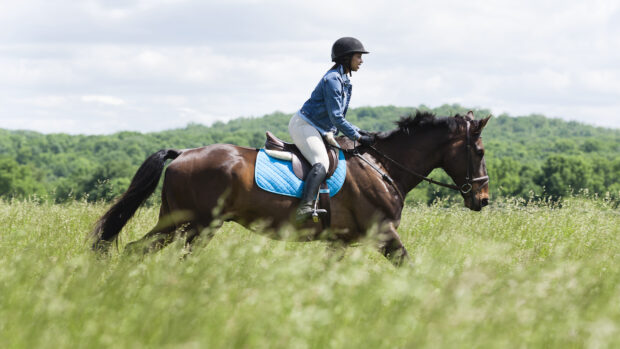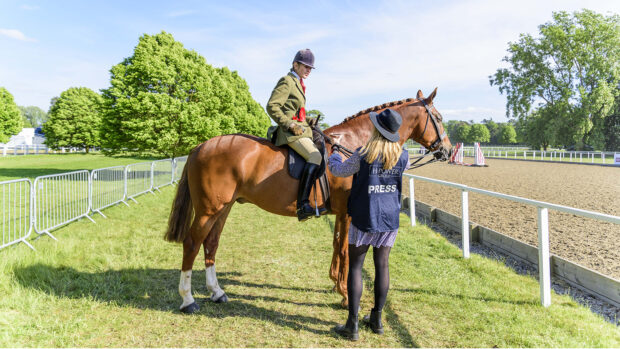Are you wondering how you’re going to land your dream job in the equestrian industry when you leave college or university? Horse & Hound finds out how to make yourself as employable as possible
1. Meet your careers adviser
Standing out from the crowd when applying for a job is vital in the current climate, and making the most of the resources at college is a great place to start.
One such resource is the college’s careers adviser, who will discuss career options, help find work experience placements, and assist with applying for jobs.
“For those undecided about their career path, impartial careers guidance is available from the careers office, in addition to the advice and support available from academic staff,” says Royal Agricultural University’s (RAU) Dr Andrew Hemmings, head of the centre for equine management and science.
“Students also have access to an online job portal, and there is considerable enterprise support available for students interested in self-employment on our website.”
2. Make the most of lecture demonstrations and talks from industry representatives
Alongside access to a careers advisor, students are also exposed to a variety of industry representatives through lecture demonstrations and talks.
“We regularly invite speakers to come and talk to our students. For instance, the British Grooms Association came in recently to talk about opportunities and give information about employment practices and regulations,” explains Mark Yates, careers coordinator at Writtle University College in Essex.
At Hadlow College, students have enjoyed lecture demos from the likes of Ben Maher, Mary and Emily King, Ben Hobday and Pammy Hutton, to name a few.
“We hold frequent lecture demonstrations as well as regular clinics with national and international trainers and riders, and put on careers events with a wide range of industry experts and further training providers,” says Sonia Wilkes, head of faculty for equine and business at Hadlow College.
“Alongside lectures from top riders, we offer tasters in horseball and mounted games along with cross-country clinics with Caroline Moore to help inspire those students wishing to progress in their own riding abilities and competitions,” adds Philippa Gerrard, head of further education sport, animal welfare and equine at Warwickshire’s Moreton Morrell campus.
3. Tap into your college’s alumni network
“Our students take advantage of a network 25+ years in the making with some high-profile alumni, such as Tim Hadaway,” RAU’s Dr Hemmings says. “Students are encouraged to learn good networking skills as contacts mean everything in the equine industry.”
Careers events are the perfect way to find out more about a career, and network with industry representatives.
“Our FILM [Faculty Industry Liaison Meeting] events promote effective development of our programmes in line with current industry feedback and requirements,” explains Jenny Paddison, acting higher education team leader, equine, and programme leader for BSc (hons) equine sports therapy and rehabilitation at at Hadlow College.
“They give us the chance to build strong relationships between our lecturing team and students, and local equestrian businesses. By giving industries the opportunity to see the students’ work and practical skills, the representatives can see how students’ skills are developed and the high standards that they meet. It’s also an excellent networking opportunity, and builds confidence and pride.”
4. Embrace hands-on experience
Many equestrian colleges centre around working yards, which are the perfect environments for students to gain hands-on experience.
“Yard duties encourage students to develop not only excellent practical husbandry skills, but also promote effective communication, teamwork, organisation, timekeeping and dedication,” explains Jenny Paddison. “Duties prepare students for groom, yard manager and stud-hand roles, but the wider employability skills are transferable to many more jobs.”
One such student to benefit from in-house experience is Tom Gilbert, who after studying an extended diploma in horse management at Hadlow and working part time on their yard, took up a full-time position as technical instructor.
“I did my work experience on a local showjumping yard, which led me to pursue a role with Ben Maher after completing my course,” says Tom. “After 18 months at Ben’s, I saw the advert for technical instructor at Hadlow and I started in October last year. I want to become a lecturer so it is the perfect stepping stone.”
At Hartpury, students have the opportunity to assist with the running of shows, and gain experience working in the equine therapy centre, rider performance centre, and marketing and communications department.
Former H&H blogger Fizz Marshall studied BSc equine science at Hartpury, during which time she volunteered at the equine therapy centre.
“Volunteering at the equine therapy centre then led to me earning a graduate assistantship, a type of working scholarship,” explains Fizz. “The assistantship allowed me to undertake an MA in equine business management, which has set up various aspects of my career so far. I was then asked to go back to the equine therapy centre as assistant manager, and was promoted to centre manager four years later. The work experience programme at Hartpury allowed me to gain a huge array of skills and get a foot in the door.”
5. Carefully plan your work placement
Colleges assist students in securing work experience placements in order to enhance their industry experience.
Hartpury approves around 150 equine work placements each year, including with local employers such as NAF, Tweenhills Stud, Carl Hester, and local livery and competition yards.
At RAU, all degrees feature a 20-week work placement in the industry.
“It is critical for students’ employability that they develop a good understanding of the equine sector, including opportunities available, and a good commercial awareness of the current challenges facing the industry,” says Dr Hemmings. “The industry placement is an excellent opportunity to do this, with many students making important contacts during this time which can lead to full-time employment after graduation.”
Former Warwickshire College student Annabel Willis landed herself a full-time job at Sir Mark Prescott’s Flat racing yard in Newmarket following a four-week work placement there in her second year of a level three extended diploma in horse management.
“I wanted my four-week work placement to count, so jumped at the opportunity to work with Sir Mark,” said Annabel. “I’m now there full time, and watching and learning from the best. I know that if I get a good reference from Sir Mark Prescott, it’ll be like gold dust.”
Continued below…

Hot competition: the secrets to bagging a place on top equestrian courses
From racing to horse care, H&H finds out

6 reasons why a Saturday job on a yard will set you up for life
6. Are there any other qualifications you could be getting alongside your course?
Alongside their courses, students have opportunities to gain further qualifications such as British Horse Society exams, and certificates in health and safety, first aid and project management.
“Consultation with industry revealed that alongside a degree and work experience, the completion of industry-relevant short courses was considered exceptionally valuable,” Rosie Scott-Ward, vice-principal and dean at Hartpury College advises.
“Employers felt that evidence of these on an application form would significantly increase the likelihood of gaining an interview. To support this, Hartpury committed over £100,000 in 2016/17 to support students in gaining such certifications.”
7. Sign up to extracurricular activities
RAU students are encouraged to take part in extracurricular activities including membership of sports teams, helping to run other clubs, and positions on the student union and student ambassador roles, all of which can help to develop key employment skills.





